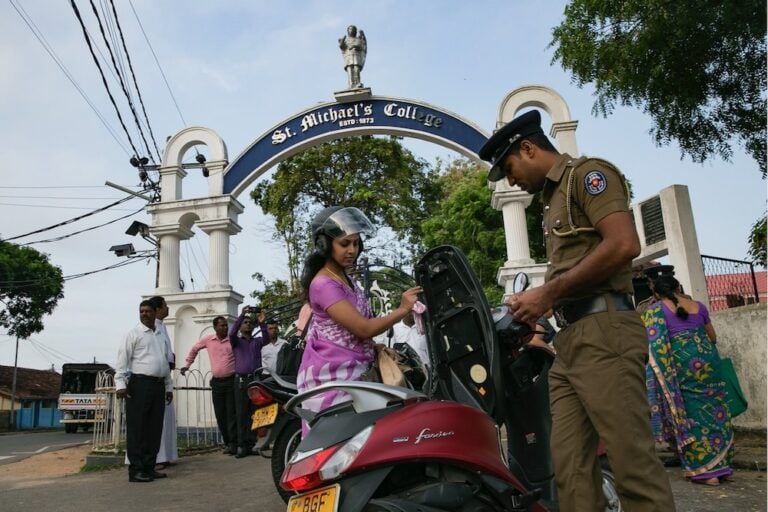(FMM/IFEX) – The following is a joint statement by FMM, the Sri Lanka Working Journalists Association (SLWJA), the Federation of Media Employees Trade Union (FMETU), the Sri Lanka Muslim Media Forum (SLMMF), and the Sri Lanka Tamil Journalists Alliance (SLTJA): Reporting the escalation of violence: A request to Journalists The escalation of violence in the […]
(FMM/IFEX) – The following is a joint statement by FMM, the Sri Lanka Working Journalists Association (SLWJA), the Federation of Media Employees Trade Union (FMETU), the Sri Lanka Muslim Media Forum (SLMMF), and the Sri Lanka Tamil Journalists Alliance (SLTJA):
Reporting the escalation of violence: A request to Journalists
The escalation of violence in the past two weeks has meant that we journalists are daily confronting increasingly serious challenges as we try to report on the conflict. Our organisations believe now is a crucial time for all of us to recall our professional standards, and also the guidelines for how we should report conflict situations.
The following characteristics have been prominent in the reporting of the conflict in recent days:
a. There have been obvious and sharp differences in the coverage of the conflict in the Tamil, Sinhala and English media.
b. There has been a tendency to stress the number of personnel killed, at the expense of reporting on the humanitarian aspects of the situation.
c. Sensational reporting has incited the emotions of the public.
d. There have been many unrealistic expectations about the “success” of the various actions during the conflict.
It’s therefore important to remember the universal standards of journalism:
a. Ensure accuracy, impartiality and balance.
b. Exclude your own beliefs and opinions.
c. Abide by our slogan: “Facts are sacred, comment is free.”
The basic values that make up public service journalism are essential at a time such as this: respect diversity, avoid discrimination, advocate tolerance, provide a space for many different voices and opinions, and seek solutions. These values all play a vital role in promoting awareness among the public.
While we respect the right to express an editorial opinion, we also consider it a grave error if the distinction between accurate reporting and the expression of strident opinion becomes blurred.
We also believe that self-censorship, by concealing facts about the conflict from the public, is a threat to responsible journalism. Censoring the news through self-imposed or unofficial censorship curtails media freedom and violates the public’s right to information.
Nearly 100,000 people have been displaced following the intense fighting that took place in recent days. However, there has been insufficient coverage regarding their well-being. This is especially true in regard to those displaced in the Muttur, Sampoor areas and Jaffna peninsula. The media must take the initiative by reporting these people’s concerns and making editorial space available to find solutions to the conflict, instead of inciting more violence.
Under the circumstances we stress the importance of sensitivity when covering the conflict. If through our reports we merely intensify the conflict, if we hail the loss of life as a step closer to victory, if we promote fear and misunderstanding among people, then we must reconsider how we set about reporting the news.


